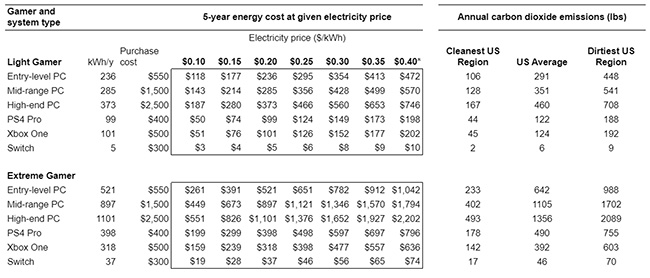
We're an independent European trading company with less than 20 employees. Given our size and resources, we have set ourselves ambitious goals to improve our environmental footprint. We want to identify and promote games that have a positive environmental impact and continue to contribute to a sustainable method of measuring the environmental impact of games.
In addition, we have developed an internal company action plan comprising four points: (1) Understand, (2) Measure, (3) Avoid and Reduce and (4) Contribute.
In 2019, we initiated a working group on the topic of "digital sobriety", which was set up within the French association l'Association des Professionnels du Jeu Vidéo en Nouvelle-Aquitaine (So Games).
In 2020, we signed the Planet Tech Care Manifesto, which consists of a commitment to measure and reduce the environmental impact of Gamesplanet.com's digital services.
We have also signed the Karlskrona Manifesto, which affirms the central importance of developing sustainable digital services.
Gamesplanet.com is also a signatory to the Digital Responsible Charter of the INR Think Tank.
Our participation in these working groups and initiatives has significantly increased our understanding of the environmental impact of digital services.
In 2021, we took part in training to enable us to create and analyse our own internal carbon footprint. The aim was to record and understand our direct and indirect greenhouse gas emissions.
While it was relatively easy to calculate the carbon footprint of our travelling, we soon encountered the difficulty of finding emission factors for some of our more specific activities. We realised that even seemingly trivial information such as the power consumption of a PC or the analysis of its entire life cycle is difficult or impossible to obtain. Without reliable and transparent sources of information, it was difficult for us to take measurements and make decisions.
Finally, we realised that the majority of our environmental impact is outside of our direct sphere of influence, e.g:
97% of our footprint comes from downloading the games we distribute (estimated 479t CO2e per year) and the time our customers spend playing the games on their hardware (estimated 90,000t CO2e per year).
Over the years, our knowledge of the issue has evolved and refined considerably, but without us being able to do much significant work with real impact. So the question for us was what more we could do?
As a retailer, we always have a mediating function. We are the link between publishers, hardware manufacturers and gamers. We want to utilise this position to share and pass on information that is relevant to change. From the players' perspective, we want to answer the following specific questions:
There has never been an easy-to-understand answer to all these questions on any video game distribution platform.
According to the 2019 study by Evan Mills "Green Gaming: Energy Efficiency without Performance Compromise" and the website GreeningTheBeast.org, there is a difference factor of 10x to 20x in power consumption in kWh per year between a Switch console and a PS4 or Xbox One. There is also a 2x ratio between an entry-level PC and a core gamer configuration.
In other words, playing on a high-end PC for 5 years, the cost of electricity would have been ~$1,100 USD compared to half that on an entry-level PC. Comparable for consoles: ~$320-$400 USD on a PS4 or Xbox One versus $37 USD on a Switch.

Well-informed players can therefore not only decide in favour of or against better environmental compatibility, but also save money by preventing their electricity bills from skyrocketing.
In recent years, we have made a number of decisions for the company that have gone hand in hand with a reduction of our own carbon footprint.
Between 2013 and 2021, we reduced our greenhouse gas emissions in Scope 11 and Scope 22 to less than 4t CO2e and drastically reduced our upstream Scope 33 (less than 18t CO2e).
This reduction was made possible by several key developments:
Focusing on essential parts of the company: In 2013, the company had over 40 employees. Reducing the workforce to less than 20 employees today was a necessary business decision that we were very reluctant to make from a social point of view. Nevertheless, this change in the company is clearly visible in our carbon footprint. \ \ As part of the reduction in our workforce, we have significantly reduced our office space. In 2013, we used to have more than 240sqm of space in Paris and 65sqm in Düsseldorf. Today, our employees work entirely from home. All of our employees' daily commutes are therefore no longer necessary.\ \ Nevertheless, working remotely is not neutral in the company's carbon footprint: it leads to a moderate rebound effect due to the additional energy consumption at home during the working day (including heating, air conditioning, lighting, internet, connected devices, meal preparation). We have assessed this share in our Scope 1/2 with 1.4t CO2e to position the "energy emissions related to remote work" in the same category as a traditional office-based company.
The redesign of our IT organisation: In 2012, we had large server systems that were mainly hosted in Paris and were set up redundantly. We also had oversized IT equipment.\ \ By abandoning some of our distribution models, recycling all of our old hardware (much of it is used as test servers by our friends at Eugen Systems), applying a more rational purchasing policy for our equipment and choosing a new hosting company, we have drastically reduced our costs and our environmental impact.\ \ Gamesplanet chose Hetzner Online in 2015, which offers 100% green electricity (water and wind powered) and one of the most efficient PUE (Power Use Effectiveness) in the industry.
Reducing flights: In 2019, several members of our team were physically present at most of the major annual industry gatherings: GDC, E3, Gamescom, Paris Games Week... By 2021, the impact of our travel has been reduced to less than 1t CO2e. It should be noted that this result is mainly due to a change in the behaviour of the entire industry since COVID19.
At the same time, we initiated a comprehensive review of our platform at the beginning of 2023 in order to develop an internal sustainability policy for the company-specific IT equipment, our software, the technical infrastructure and the data centres we use.
Our objectives also include anticipating future compliance with the "Reducing the Environmental Footprint of the Digital Environment Act (REEN)" and future compatibility with the AFNOR standard for ecologically designed digital services. We are following the preliminary normative work on the environmental impact of information technology and data centres, which is to develop in the direction of ISO/IEC JTC 1/SC 39.
Claiming to contribute to the reduction of greenhouse gases is a sensitive topic. It is particularly prone to "green washing".
Whilst we obviously want to help 'take carbon out' of the atmosphere by improving the uptake capacity of carbon sinks, we also want to take the time to do it properly.
We want to fund a meaningful carbon sequestration project, not just randomly planting trees where labour is cheapest. Local projects and forests close to where we live should be selected, combined with actions to improve efficiency, so that the potential to sequester greenhouse gases could be increased tenfold.
The company maforet.com, which develops forestry projects throughout France with a dual objective (tackling climate challenges and biodiversity), presented us a project located in the Périgord-Limousin Regional Nature Park. It involves the restoration of a coppice forest with chestnut trees that are suffering from the effects of climate change, but are also threatened by a lack of care and tree diseases.
This project is part of an experiment carried out by the Périgord-Limousin Regional Nature Park in collaboration with the Centre National de la Propriété Forestière. Various silvicultural techniques are being tested to recover these dying chestnut coppices, which are representative of the region. As the aim is to preserve all the functions of these typical forests, the quality of the routes will be assessed according to both silvicultural and ecological criteria.
In addition to sequestering (storing) 358t of CO2 over the next 30 years, the project will also help to adapt the existing tree population to the effects of climate change. The forest cover will be maintained as much as possible in order to combine reasonable timber production, the preservation of biodiversity and respect for the landscape and local natural heritage.
We have analysed this project in detail and decided to support it in 2024. Metaboli's management decides on further support for this and other projects on an annual basis.
Our commitment and the pages published here are the result of several years of work and knowledge gathering. This represents a considerable investment for a small company like ours. However, our work should not stop after these first steps.
As you've taken the time to read this far, you will have realised that we are primarily concerned with reducing the really significant part of our impact, Scope 3. This means that we need to intensify our interaction and collaboration with our partners, publishers and hardware manufacturers.
Of course, this also includes our customers, to whom we owe transparent and relevant information so that they have the opportunity to make informed decisions. After all, they are the ones who will change the ecological footprint of the entire games industry.
We also working to further improve the quality of the measurements we carry out, and this can only be achieved in the long term with the voluntary support of hardware manufacturers and developers. If you would like to help, please contact us at [email protected].
We're laying the foundation and hope that, together with all our partners, we can contribute to a more environmentally friendly games industry.
We still have a long way to go, the first steps have been taken.
Emissions from sources for which companies are directly responsible for or control. ↩
Indirect greenhouse gas emissions from external energy, such as electricity, water, heating or cooling, which is generated outside the company's own systems but consumed by it. ↩
All indirect emissions generated along the value chain of companies. ↩